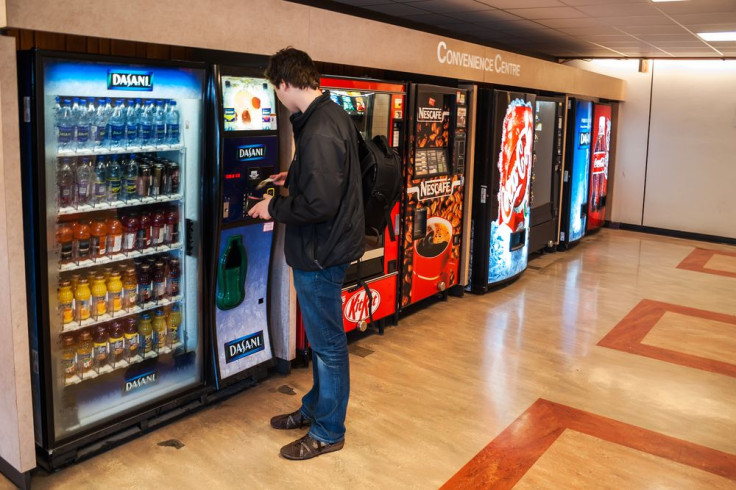Vending Machine Bans In Schools Encourage Kids To Find Fast Food Elsewhere; Changing Diets Requires Large-Scale Change

Last year, 44 percent of school districts banned junk food from vending machines, believing that by eliminating unhealthy foods, they'd encourage kids to eat better. But a new study finds that banning vending machines in schools might not end up curbing childhood obesity after all — it may actually worsen it. Instead of promoting healthy eating, researchers say that it could cause an increased consumption of fast food.
The researchers, from the University of Illinois, found that solely banning vending machines without taking any subsequent measures may not help students make healthier food choices. If the schools don’t have the snacks or sodas, students will find another way to purchase their favorite items. "There may be unintended effects if you only make small-scale changes," said Daniel Taber, the study's lead author, in a press release. "When more comprehensive changes were implemented, there were no unintended effects."
More than 8,200 high school students throughout 27 states were involved in the study. The researchers found that 23 percent of the students with access to vending machines in their schools drank at least one soda a day. Yet, 28 percent of high school students without vending machines drank at least one soda a day. It was these students who also tended to live in states with lower taxes on restaurant foods. In their research, they also found that differences in soda consumption only occurred in states that had lower taxes on soda, and in schools, where students were able to buy soda from the cafeteria or school store.
"Policy changes really need to be comprehensive and not just focused on one item such as regular soda or one location such as cafeterias," said Jamie Chriqui, study co-author and senior research scientist at the university's Institute for Health Research and Policy, in the news release.
Earlier this year, a Washington State school decided to crackdown on childhood obesity by banning foods in birthday celebrations. Meanwhile, a report published in the Journal of Nutrition Education and Behavior found that "7.3 percent of schools prohibit sugary items during classroom birthday parties and 6.4 percent for classroom holiday parties."
Currently, 17 percent of children and adolescents between 12 and 19 years old are obese, according to the Centers For Disease Control and Prevention. Being overweight or obese can cause several health problems, such as an increased risk of type 2 diabetes, asthma, liver disease, and depression. Children who are obese are also more likely to become obese adults.
Source: Taber D, Chriqui J, Vuillaume R, Chaloupka R. How State Taxes and Policies Targeting Soda Consumption Modify the Association between School Vending Machines and Student Dietary Behaviors: A Cross-Sectional Analysis. PLOS ONE. 2014.



























